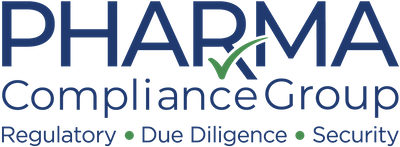Hospitals face a growing and deeply concerning challenge—healthcare workers diverting controlled substances for personal use. With increasing cases of drug theft, addiction, and compliance failures making headlines, it’s more important than ever for hospitals to adopt robust, proactive safeguards.
That’s where Pharma Compliance Group’s “Trust but Verify” Hospital Compliance Program steps in.
The Reality of Drug Diversion in Healthcare
Prescription drug abuse isn’t limited to the general public—healthcare professionals are at serious risk, too. Studies show elevated addiction rates among hospital staff. Unfortunately, the very systems hospitals rely on to provide care often lack the oversight needed to detect or prevent diversion before it escalates.
The implications are serious:
- Compromised patient safety
- Regulatory violations
- Financial penalties
- Loss of DEA registration
- Damaged institutional reputation
The Compliance Dilemma: Access vs. Security
Controlled substances must be easily accessible to ensure patient care—but that accessibility creates opportunities for theft. Medications move through many hands, often with minimal oversight. This creates blind spots.
Hospitals must implement strong compliance frameworks that **don’t just trust employees to do the right thing—**they must verify it at every step.
Key Elements of the Trust But Verify Program
Pharma Compliance Group’s approach breaks hospital drug compliance down into four critical pillars:
Prevention & Detection
- Conduct background checks on new hires—and follow-ups every few years
- Educate staff to spot red flags of substance abuse
- Share information about high-risk drugs and diversion trends
- Random audits to reconcile pharmacy inventory
- Clear policies for disciplinary action and drug testing
Oversight & Supervision
- Continuous inventory accountability
- Random checks by pharmacy and nursing managers
- Independent internal audits
- Split responsibilities to avoid abuse of power
- Cross-reference orders and returns across departments
Investigation Protocol
When diversion is suspected, swift and structured response is critical:
- Notify the DEA within 24 hours using Form 106
- Assign a designated compliance point of contact
- Use surveillance footage and ADM access logs to track incidents
- Match ordering and dispensing records for inconsistencies
- Conduct interviews and staff schedule reviews to identify patterns
Human Resources & Administrative Response
- Immediate drug testing
- HR and legal teams should lead the response
- Coordinate with law enforcement
- Prepare for public relations challenges
- Learn from incidents to strengthen future policies
Proactive Compliance is Powerful Compliance
Waiting for a diversion event to act is too late. Hospitals must take a proactive approach—creating policies that enforce drug security from order to disposal. The Pharma Compliance Group helps hospitals build these safeguards with real-world, actionable strategies.
Want to strengthen your hospital’s compliance systems?
Contact Pharma Compliance Group at solutions@pcgrx.com to learn more.

